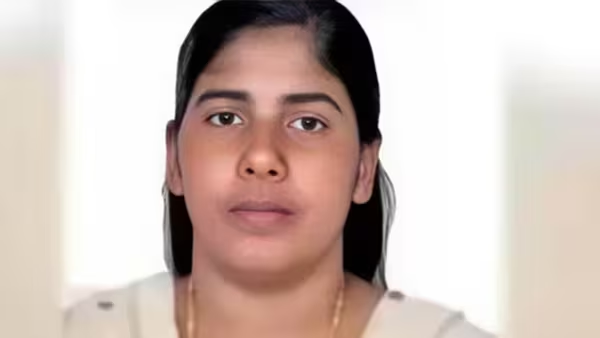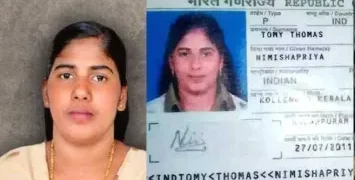The Centre informs the Supreme Court that it has limited options in preventing Indian nurse Nimisha Priya’s execution in Yemen. The petitioner argues diplomatic efforts are the only path left.

Nimisha Priya’s Execution: Centre Says Little Can Be Done as Supreme Court Hears Final Plea
The fate of Nimisha Priya, an Indian nurse facing the death penalty in Yemen, has reached a critical turning point. The Indian government recently informed the Supreme Court that it has “limited options” to intervene in her execution. This development has left her family and human rights activists deeply concerned as diplomatic avenues appear to be narrowing. The petitioner in the case, representing Priya’s mother, emphasized that the only remaining possibility is negotiation through diplomatic channels.
Who Is Nimisha Priya?
Nimisha Priya is a trained nurse from Kerala who moved to Yemen in 2008 for better career prospects. Over the years, she worked in private clinics and eventually tried to set up her own medical practice. However, due to strict local laws, her actions were deemed illegal.
In 2017, she was convicted for the murder of a Yemeni national, allegedly her business partner. Priya claimed that the act was in self-defense after facing abuse and threats. Nevertheless, the Yemeni court sentenced her to death
During a recent Supreme Court hearing, the Indian government told the bench that its capacity to influence the outcome in Yemen is extremely limited. Since India has no embassy functioning in war-torn Yemen and the country’s legal and political environment is complex, diplomatic intervention is a challenge.
The Ministry of External Affairs (MEA) pointed out that India cannot interfere in the judicial sovereignty of another country. According to MEA officials, any attempt to forcefully intervene could backfire, damaging relations with Yemen and possibly hastening the execution
The plea to the Supreme Court was filed by Priya’s mother, seeking permission to initiate “blood money” negotiations—an Islamic legal provision that allows victims’ families to accept compensation in exchange for sparing the convict’s life.
Her counsel argued that while the Centre claims to be helpless, diplomatic negotiation and financial settlement remain viable options. The petitioner urged the court to direct the government to actively pursue talks with the victim’s family and Yemeni authorities.
Understanding ‘Blood Money’ in Islamic Law
Under Shariah law, which governs Yemeni legal proceedings, the family of a murder victim can accept monetary compensation—commonly referred to as diya or blood money—in lieu of capital punishment.
This mechanism has been used in other cases involving foreign nationals in Gulf countries. The challenge here lies in identifying and reaching an agreement with the victim’s family, especially in a conflict-ridden environment like Yemen.
Human rights organizations in India and abroad have expressed alarm at the pace at which the case is progressing toward execution. They point out that Priya did not receive a fair trial and lacked adequate legal representation.
Critics also argue that the Indian government should not wash its hands off the matter when a citizen’s life is at stake. They cite instances where countries have intervened diplomatically to secure clemency or delay execution in foreign lands.
What Happens Next?
The Supreme Court has taken note of the petitioner’s plea and is expected to give further directions in the coming days. While the Centre maintains a passive role, the legal team representing Priya’s mother is racing against time to explore the blood money option.
If an agreement is reached with the victim’s family and formally accepted by Yemeni courts, the execution could be stayed or canceled.
Public support for Nimisha Priya has been growing, particularly in Kerala. Online campaigns, petitions, and community fundraising efforts are underway to raise the necessary compensation and apply pressure on authorities to act.
Activists emphasize that time is running out and that only a coordinated diplomatic effort can save her life.
Nimisha Priya’s case underscores the complex interplay between international diplomacy, human rights, and legal systems. As the clock ticks down, the Centre’s reluctance and the Supreme Court’s deliberation may determine whether one Indian life can be saved through urgent diplomatic action.
READ ALSO……..Indian Pilots’ Association Defends Air India Crash Crew Against Blame 2025















 Categories
Categories









